About CADT Howard Friese House Lakeside
The Howard Friese House Lakeside in Duluth, Minnesota is a 14 bed residential program for men with substance use disorders. It is run by the Center for Alcohol and Drug Treatment (CADT). This facility gives the men a safe and supportive environment to focus on their recovery and long term sobriety. It is particularly useful for those leaving prison and thus needs help in rebuilding their stability.
Evidence Based Care and Medication Assisted Treatment
The center offers high intensity residential treatment. They focus on relapse prevention and life skills for long term recovery.
Medication assisted treatment (MAT) is available to help manage withdrawal and reduce cravings. The treatment is overseen by clinical pharmacists in terms of medication management. This provides a more structured form of medical care to assist the individual in stopping using substances.
The program combines life skills training, peer support networks and therapeutic groups to prepare residents for successful long-term recovery. Family recovery support is also offered to help individuals repair relationships with their loved ones and work through how addiction has affected their family.
Affordable Treatment For Men
Cost should never be a barrier to receiving treatment. Care is available to those in need through Medicaid and other insurance options. With a focus on real world recovery, clinical support and skills, Howard Friese House Lakeside provides a path for men seeking to overcome their addiction and take back their lives.
Addiction Treatment Programs
Alcohol Rehab
If you’re struggling with your alcohol use, consider an alcohol rehab in Minnesota. Alcohol programs address the mental, emotional, and relational issues that may contribute to addiction. You’ll learn to build a new support network that supports your long-term sobriety.
Dual Diagnosis
If you have both a mental health condition and substance use disorder, you need dual diagnosis treatment in Minnesota to address both issues together. Along with traditional evidence-based substance use treatment, clients may receive mental health counseling, medication, peer support, and other tools to help them manage their mental health.
Opioid Addiction
If your life has been negatively impacted by opioid addiction, a high-quality rehab in Minnesota can help. These treatment programs offer detox, inpatient treatment, and outpatient care. You may receive individual, group, and family counseling, peer support, and classes in essential life skills.
Drug Rehab
The best way to achieve recovery from substance use disorder is by completing a high-quality drug rehab in Minnesota and applying the tools you learn to stay in recovery. High-quality treatment lays a foundation for sobriety and helps prevent relapses by giving you new ways of thinking, better coping skills, and a better understanding of key life skills such as emotional regulation and communication.
Adult Program
An adult program in Minnesota can help clients make healthier life choices and avoid common mistakes. Along with traditional evidence-based treatment, clients may receive employment support, parenting classes, and help securing housing.
Men's Rehab
When people join a men’s rehab in Minnesota, they are able to tackle gender-specific issues while receiving treatment. Along with traditional evidence-based treatment, clients may receive education on topics relevant to men, such as fatherhood, healthy relationships, emotional vulnerability, and more.
Young Adult Rehab
If you’re a young adult struggling with substance use, consider a young adult rehab program in Minnesota. Along with traditional evidence-based treatment, clients may receive educational support, employment training, and help securing housing.
Senior Rehab
Insurance Coverage
Medicaid
If you qualify, Medicaid can help pay for some or all of the costs of rehab in Minnesota. Medicaid often covers the full cost of rehab if you choose a center that accepts it. You can look for multiple types of care, including detox, inpatient, and outpatient.
Private insurance
There are many ways to pay for rehab in Minnesota, and one of the more affordable is using private insurance. Contact your insurer to get details about coverage and out-of-pocket costs, such as deductibles and copayments.
Self-pay options
Paying for rehab in Minnesota yourself is known as self-pay or private pay. You write a check, use a medical loan, or electronically send money to your treatment center of choice. Payment details may vary depending on the level of care.
Financial aid
When looking for ways to pay for rehab in Minnesota, consider asking about financial aid programs. Community groups or non-profits in your area may offer assistance, or you might find a treatment program that has grants or scholarships.
Medicare
If you’re looking for ways to pay for rehab in Minnesota, consider using Medicare. You may have out-of-pocket costs such as a deductible or copay, and you’ll want to look for a treatment center that accepts your Medicare coverage.
Military insurance
For those who qualify, military insurance is a good way to pay for substance use treatment in Minnesota. Your insurance plan can pay for some or all of the costs of rehab, although you will want to contact the insurer for full details. You may have some out-of-pocket costs such as copays or deductibles.
Levels of Care
- 1
Detox Treatment
During detox in Minnesota, you’ll be monitored as the substances leave your system. Then you can start fresh and create a new life. A medical detox program will provide 24/7 supervision by medical staff who can treat withdrawal symptoms with FDA-approved medication and other treatments.
- 2
Inpatient Rehab
During inpatient treatment in Minnesota, clients receive evidence-based treatment while living full-time at the facility. Residential treatment allows you to build new relationships and begin to learn how to enjoy life without substance use.
- 3
Aftercare Support
It’s easy to wonder what’s next after treatment, but fortunately, aftercare in Minnesota can provide ongoing support. The end of treatment is far from the end of the story, so take advantage of aftercare resources such as sober living, 12-step and other support groups, peer coaching, and more.
Therapies
Cognitive Behavior Therapy
The goal of cognitive behavioral therapy (CBT) in Minnesota is to address negative thinking patterns to create positive change. CBT is a common part of evidence-based treatment programs and may be a part of inpatient treatment, outpatient care, or both. CBT can be empowering as you learn to manage your thoughts and emotions rather than being overwhelmed by them.
Dialectical Behavior Therapy
The goal of dialectical behavioral therapy (DBT) in Minnesota is to help you recognize your strengths and embrace your ability to create positive change. DBT is a common part of evidence-based treatment programs and may be a part of inpatient treatment, outpatient care, or both.
Group Therapy
Group therapy in Minnesota can provide encouragement, support, and accountability as you work through substance use treatment. Group therapy is a normal part of evidence-based treatment programs, and may be a part of inpatient treatment, outpatient care, or both. Topics include addiction education, sharing of experiences, and learning new skills.
Individual Therapy
During individual therapy in Minnesota, clients have a confidential environment to work through their struggles with a professional. Individual therapy is a common part of both inpatient and outpatient substance use treatment and may be used to help with skill-building, overcoming trauma, and creating a substance-free lifestyle.
Trauma Therapy
Talking about what you’ve been through and how it impacted you is an important way to heal, and trauma-informed therapy in Minnesota gives you that opportunity. Trauma-informed therapy sessions generally last 60 to 90 minutes and may include discussing a specific event, talking about emotional triggers, and learning emotional regulation and cognitive restructuring skills.
Location
Contact CADT Howard Friese House Lakeside
Top Drug Rehab Centers in Minnesota
-
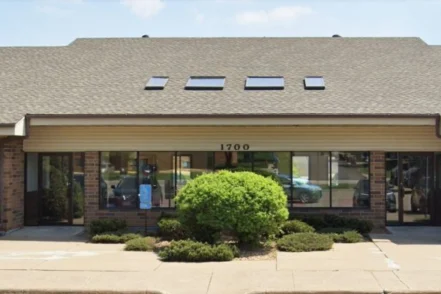 Minnesota
MinnesotaTwin City Chemical Health Services
1700 Livingston Avenue, Suite 102 West St. Paul, Minnesota 55118
-
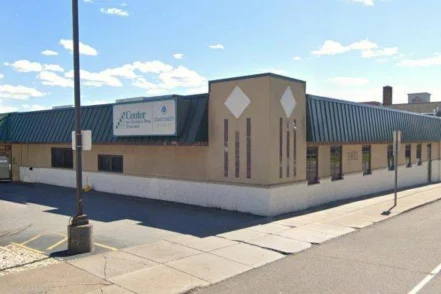 Minnesota
MinnesotaCADT Center for Alcohol and Drug Treatment
1402 East Superior Street Duluth, Minnesota 55805
-
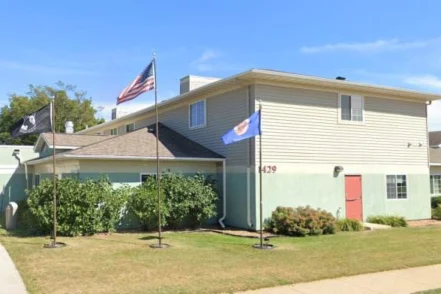 Minnesota
MinnesotaHouse of Hope Inc Mankato
1429 3rd Avenue Mankato, Minnesota 56002
-
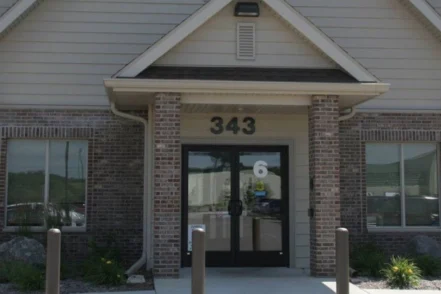 Minnesota
MinnesotaZumbro Valley Health Center Woodlake Drive
343 Woodlake Drive Se Rochester, Minnesota 55904
-
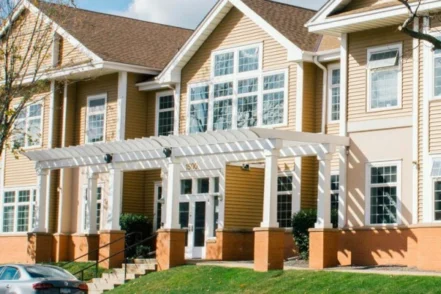 Minnesota
MinnesotaTurning Point Minneapolis
1500 Golden Valley Road Minneapolis, Minnesota 55411
-
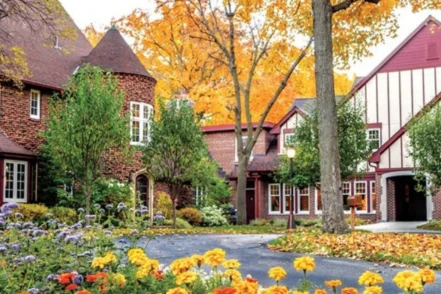 Minnesota
MinnesotaThe Retreat Wayzata
1221 Wayzata Blvd E Wayzata, Minnesota 55391
-
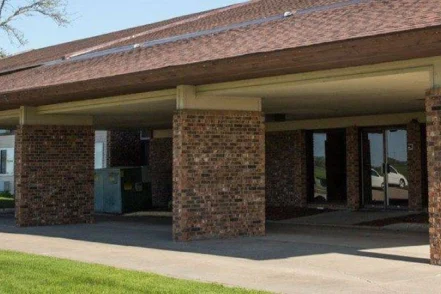 Minnesota
MinnesotaDouglas Place
1111 Gateway Drive Northeast East Grand Forks, Minnesota 56721
-
 Minnesota
MinnesotaMeridian Behavioral Health New Brighton
550 Main Street, Suite 230 New Brighton, Minnesota 55436
-
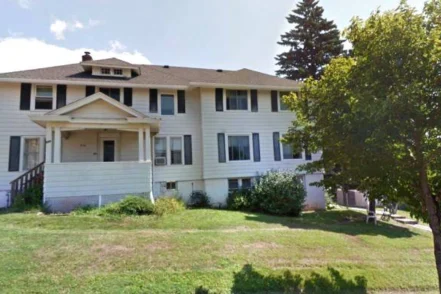 Minnesota
MinnesotaCADT Howard Friese House Hillside
714 North 11th Avenue East Duluth, Minnesota 55805
-
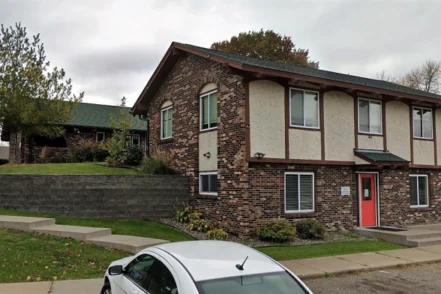 Minnesota
MinnesotaAnthony Louis Center Blaine
1000 Paul Parkway Minneapolis, Minnesota 55434